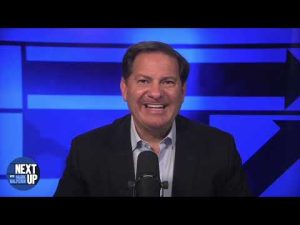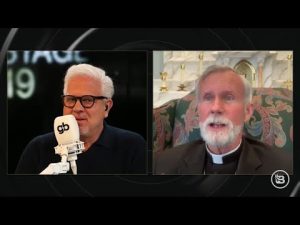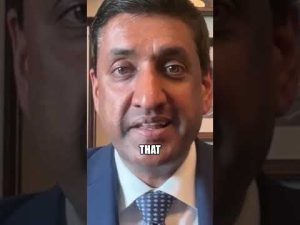**Canada’s Free Speech Crisis: A Warning for America**
In what some are calling a disturbing trend, recent events in Canada have raised alarms about the state of free speech and journalistic freedom in the country. Ezra Levant, a Canadian journalist associated with Rebel News, found himself at the center of a troubling incident that highlights these growing concerns. Over the weekend, Levant encountered a pro-Hamas protest in his predominantly Jewish neighborhood of North Toronto. What unfolded next serves as a stark reminder that even our neighbors to the north are grappling with the consequences of tightening restrictions on speech.
Levant, acting in the capacity of a journalist, merely wanted to document the protest, which recreated the final moments of a deceased Hamas leader. As absurd as it sounds, police officers approached Levant and informed him that he could not take photographs, claiming his presence was inciting a disturbance. Consider this: a journalist was effectively treated as a criminal in his own community, while those promoting a message of hate were allowed to gather. Levant was ultimately arrested, handcuffed, and taken away, raising serious questions about the policing of dissent in Canada.
This incident is not an isolated one; it fits into a broader pattern of journalists facing intimidation and arrests for simply doing their jobs. Levant noted that his experience in the past year was part of a concerning trend, with six journalists from his outlet facing similar treatment. The message is chilling: if free speech is not protected, the consequences could be dire for any nation that prides itself on its democratic principles.
The sad truth of the matter is that Canada, once seen as a beacon of freedom, is now increasingly viewed as a warning sign for its neighbor to the south, the United States. Levant cautioned Americans to appreciate the value of their First Amendment rights lest they find themselves on a slippery slope toward a similar fate. In a country where police appear to act more like “concierge” service for radical protesters rather than uphold the law, can anyone blame them for feeling that their freedoms are being systematically eroded?
Levant raised several critical points regarding the state of free speech in Canada. The country’s Charter of Rights and Freedoms is under siege, and the government, spurred by policies from Prime Minister Justin Trudeau, is wielding its influence to curtail journalistic integrity. This situation serves as a precursor for Americans; if they do not safeguard their constitutional rights, they may quickly find themselves facing similar battles.
With an election on the horizon, there is hope on the Canadian political landscape. Levant discussed Pierre Poilievre, a conservative leader who seems poised to challenge Trudeau under a coalition government that has kept him in power. But with a year left until the election, the pressing question remains: Will voters turn the tide before it’s too late? As the world watches, Canada’s struggle serves as a powerful reminder that the fight for freedom requires constant vigilance and, sometimes, a little bit of humor when confronting the ridiculousness of the situation. Let’s just hope that, unlike Canada, Americans value their freedoms enough to keep them from slipping away into the night.







